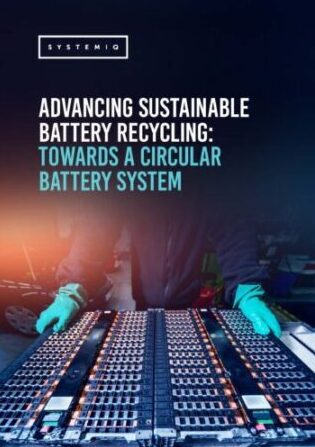By 2030, there could be around 350 million electric vehicles (EVs) globally, with around 1.9m EV batteries annually reaching their end of life. By 2040, this number could grow to 20m EV batteries per year.
As a result, the global battery recycling industry is growing rapidly, but the environmental and social impacts of different recycling technologies are not yet well understood.
To address this, Systemiq is today publishing a new study, titled ‘Advancing Sustainable Battery Recycling: Towards a Circular Battery System‘. It sheds light on the environmental and social impacts and risks of recycling electric vehicle lithium-ion batteries and proposes ways forward to ensure a sustainable future for this rapidly growing global industry.
Industry leaders BASF, GRS Batteries, Li-Cycle, Mercedes Benz, and Rock Tech Lithium provided financial support for the research, which drew expertise from an advisory council and external experts from TU Braunschweig, TU Clausthal, Fraunhofer IST, the Faraday Institution, Transport & Environment and WWF.
Key findings
Recycling not only ensures responsible disposal but could also result in a substantial reduction of greenhouse gas emissions, potentially saving around one million tonnes per year in the EU alone by 2030.
However, the study highlights potential risks and impacts associated with battery recycling, emphasising the energy-intensive nature of traditional recycling methods and the high water consumption of alternative hydrometallurgical processes.
The study proposes three key action areas to enhance global sustainability in battery recycling





